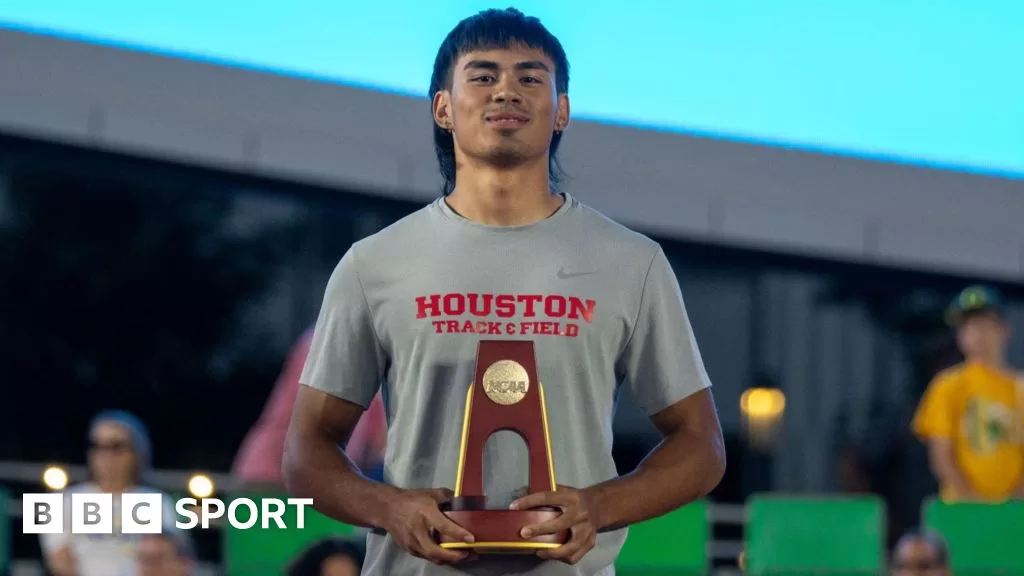When 21-year-old British sprinter Louis Hinchliffe sought out nine-time Olympic gold medallist Carl Lewis as his coach, he knew exactly what he was doing.
He did so with the ambition of maximising his potential, having moved to America after thoroughly enjoying his year as a university fresher in the UK – and admittedly not taking training too seriously.
Neither he nor Lewis – a coach at the University of Houston for the past decade and with 17 global titles to his name – truly expected what has unfolded in the short period since their first phone call last August.
Hinchliffe had not broken the 10-second barrier at that point. He had not yet made history by winning the United States’ collegiate 100m title, as achieved by Lewis himself while at Houston in 1981.
Yet, as surreal as all this still feels, targets must be adapted with Paris 2024 fast approaching.
“If Louis goes to the Olympic Games and wins two gold medals, I’ll remind him that he needs seven more,” jokes Lewis, speaking to BBC Sport.
“Trust me, I will make sure he stays humble.”
Hinchliffe is in safe hands, as he knew he would be.
The excitement surrounding the Sheffield-born athlete’s remarkable progress so far this year is understandable.
Hinchliffe made headlines when he recorded the second-fastest all-condition 100m in British history with a wind-assisted 9.84 seconds in May.
Then, in Oregon on Friday, he followed that up by becoming the first European athlete to win the men’s 100m title at the National Collegiate Athletics Association (NCAA) Championships.
The time? A blistering 9.95secs – his first legal run under 10 seconds placing him sixth on the British all-time list in the biggest race of his life so far.
“I really didn’t expect all of this to happen,” says Hinchliffe, still stunned a day after his historic triumph.
“I knew I had a chance but I wasn’t one of the favourites. It’s surreal. I’m over the moon but I’m also relieved it’s done.
“Last year I finished last in my semi-final. To get into the final and then win is crazy.
“Being in such a high-pressure environment brought the best out of me. Everything just came together.”
And it has all come together not only in an Olympic year, but in the same month as the British Olympic trials and seven weeks before the Games.
